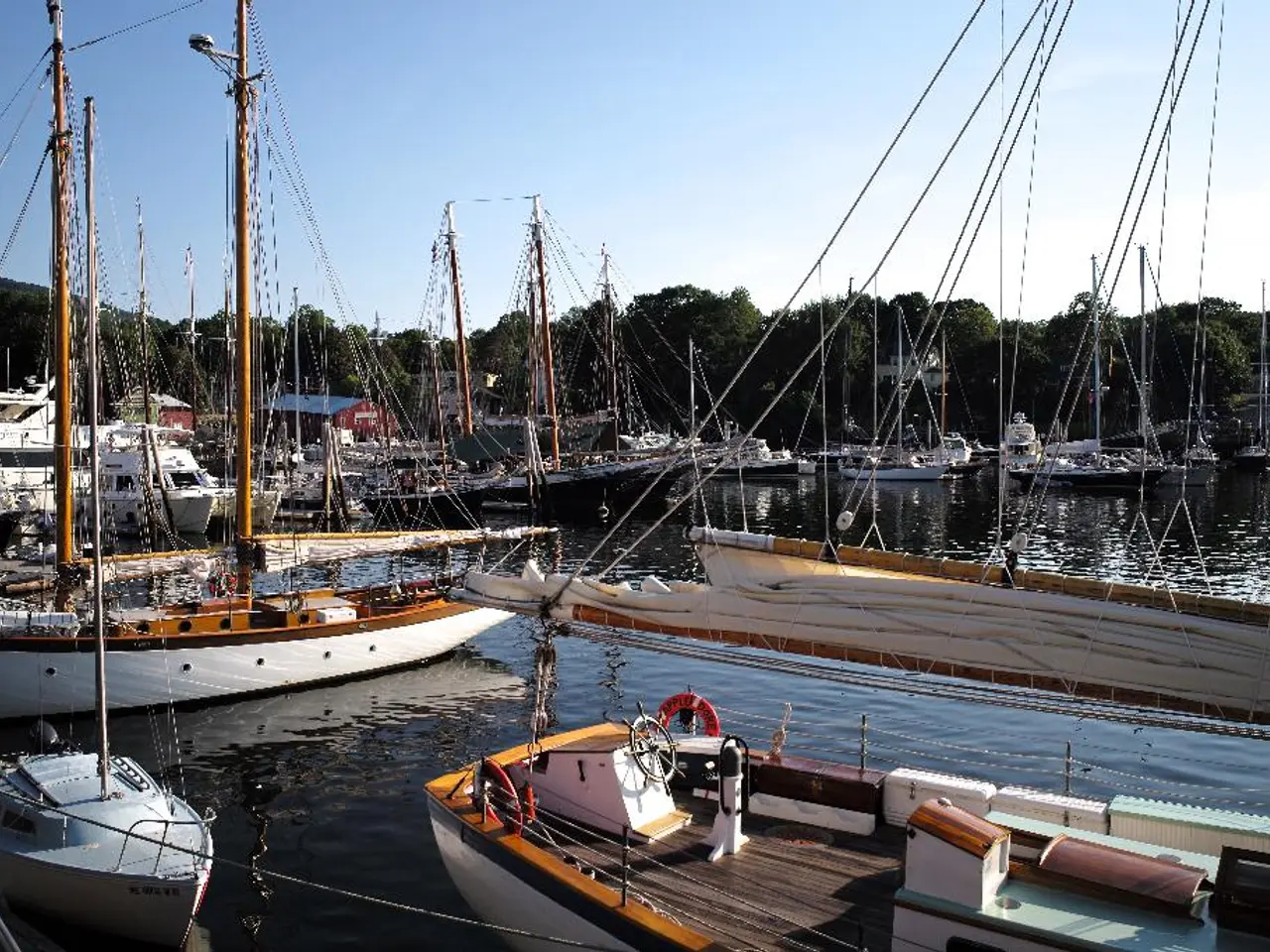delved into: Origins of European Colonization Detailed
In the 15th to 18th centuries, the Age of Discovery marked a pivotal period in human history, as European nations embarked on a series of explorations that led to extensive overseas colonization and global power shifts. This era was characterized by a complex interplay of economic, political, religious, and technological factors.
Economic factors were at the heart of this exploration. European powers sought alternative sea routes to Asia to access valuable commodities such as spices, silk, and perfumes, previously monopolized by Italian city-states like Venice and Genoa through Mediterranean trade routes. The capture of Constantinople (1453) by the Ottoman Turks blocked overland routes, raising prices and urgency to find new maritime paths, particularly to India and the East. Colonies were also a source of raw materials and new markets for European goods, fueling the growth of empires like Britain’s[1][3][5].
Political rivalry among European powers like Spain, Portugal, Britain, and the Netherlands played a significant role in driving colonization. The rise of strong centralized states motivated competition for overseas territories, with control of strategic ports and trade routes equating to political leverage and military advantage. Conflicts such as the Seven Years' War (1756–1763) showcased the political struggles over colonial holdings, with territorial gains tied to dominant international status[1][3][5].
Religious motivations, particularly the zeal to spread Christianity, also played a significant role in the colonization narrative. Missionary zeal to convert indigenous populations paralleled economic and political ambitions, reinforcing European cultural and religious influence in colonized regions such as the Americas, Africa, and Asia[4].
Technological advancements were crucial in enabling these explorations. The development of ships like the caravel and later the nao (carrack)—light, ocean-worthy sailing ships with multiple masts—enabled longer voyages beyond coastal waters. Improvements in navigational instruments like the magnetic compass and astrolabe allowed mariners to determine latitude and direction more accurately, facilitating exploration into the Atlantic and beyond[2].
The unintentional introduction of diseases like smallpox during European exploration led to devastating consequences for indigenous populations, resulting in significant population declines. However, the symbiotic relationship between the metropole and the colonies played a crucial role in fostering economic growth and prosperity in the burgeoning capitalist system[6].
The acquisition and expansion of colonies were not only strategic maneuvers but also acts that enhanced the perceived might and influence of a nation, fostering a sense of superiority. Possessing colonies was regarded as symbols of prestige and glory, contributing to the standing of European nations on the global stage[7].
The era of European colonization had profound and enduring impacts on both the colonizers and the colonized, with the legacy of this period resonating in the present. The search for prestige and glory played a significant role in driving the colonization efforts of European powers, while commercial capitalism sought new markets and investment opportunities to fuel economic expansion, with colonies providing access to untapped resources and lucrative markets[8].
The Age of Discovery was marked by intense competition among nations, driven by the rise of nationalism, which fueled a race for colonial dominance. The legacy of European colonization continues to influence our contemporary world, serving as a reminder of the intricate threads woven into the fabric of history[9].
[1] Fernández-Armesto, F. (1987). The Europeans: Three Ways of Writing History. New York: Viking. [2] Kagan, R. (2003). The Peloponnesian War. New York: Viking. [3] Morison, S. (1942). The European Discovery of America: The Southern Voyages, 1492-1616. Boston: Houghton Mifflin. [4] Tzvetanov, N. (2009). The Conquest of America: The Question of Religion. Cambridge: Cambridge University Press. [5] Wallerstein, I. (1974). The Modern World-System I: Capitalist Agriculture and the Origins of the European World-Economy in the Sixteenth Century. New York: Academic Press. [6] Braudel, F. (1993). Capitalism and Material Life, 1400-1800. New York: Harper Perennial. [7] Pomeranz, K. (2000). The Great Divergence: China, Europe, and the Making of the Modern World Economy. Princeton: Princeton University Press. [8] North, D. C., & Thomas, R. P. (1973). The Rise of the Western World: A New Economic History. Cambridge: Cambridge University Press. [9] Diamond, J. (1997). Guns, Germs, and Steel: The Fates of Human Societies. New York: W.W. Norton & Company.
Motivated by the pursuit of political advantage and commercial expansion, European powers invested in advanced technology to facilitate explorations, such as the development of caravels and improvements in navigational tools. These strategic maneuvers were also aimed at enhancing each nation's prestige and global standing in the rapidly evolving political landscape of the time.
The Age of Discovery, characterized by intense competition among European nations, also witnessed the spread of European religions, as religious motivations parallel economic and political ambitions fueled the colonial expansion especially into the Americas, Africa, and Asia.




